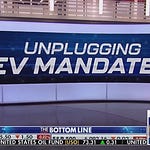Tesla Tries to Bury the Truth About Autopilot Crashes
By Lauren Fix
When it comes to Tesla, the headlines often focus on innovation, stock surges, or Elon Musk’s latest ventures. But behind the scenes, a legal battle is brewing—one that could shape how much the public is allowed to know about the safety of the vehicles many Americans trust with their lives.
Tesla is trying to block the release of crash data involving its driver-assistance systems, including Autopilot and Full Self-Driving (FSD). The Washington Post filed a lawsuit last year against the National Highway Traffic Safety Administration (NHTSA), seeking access to federal crash records when these systems were engaged. Now, Tesla is asking a federal judge to keep that information sealed, claiming it contains confidential details that could give competitors insight into the company’s proprietary technology.
But here’s the problem: this isn’t just about corporate secrets. It’s about public safety.
Tesla insists that revealing the version of hardware and software involved in crashes would allow competitors to assess system performance. But legal experts and watchdogs argue that Tesla drivers themselves can already access that same information in their vehicles. So why should regulators and the public be kept in the dark?
The Post claims that while NHTSA releases some crash data, it withholds key details—such as which version of Tesla’s driver-assistance software was in use, what the road conditions were like, and whether the driver was actively engaged. This information could be crucial to understanding patterns of failure and determining whether certain versions of Tesla’s software are more prone to accidents.
Let’s be clear: this isn’t just a media outlet fishing for headlines. The NHTSA’s own investigations support the urgency here. In 2023 alone, Tesla recalled over 2 million vehicles to install additional safeguards on its Autopilot system. That same year, the agency launched an investigation into Full Self-Driving (FSD) after a string of crashes, including a fatal one.
Transparency is not optional when lives are at stake.
Tesla’s argument boils down to this: if the public learns too much about how often its driver-assistance systems fail, it could hurt the company’s bottom line. That’s not an acceptable reason to hide safety-related data from consumers, lawmakers, or regulators.
NHTSA, for its part, isn’t exactly taking a stand either. The agency claims that some of the Post’s requests are exempt from public disclosure under federal law. That leaves Americans stuck in the middle—driving or sharing roads with vehicles that may be using experimental technology, without being told how often it fails.
This is especially alarming given Tesla’s public stance. While the company markets FSD and Autopilot as advanced and cutting-edge, it also insists that these features are not autonomous and still require driver supervision. That’s a contradiction—Tesla wants the brand halo of autonomy but none of the accountability when things go wrong.
Now add Tesla’s upcoming Robotaxi rollout into the mix. Elon Musk has announced an autonomous taxi service to be unveiled later this year. This would place fully driverless Tesla vehicles on public roads with little to no human oversight. If Tesla is fighting to hide crash data from its semi-autonomous systems today, how much less transparent will it be when no one’s in the driver’s seat? It raises serious questions about whether the public will have any real oversight into the safety of these so-called “autonomous” fleets.
This isn’t just a Tesla problem. Waymo (owned by Google parent company, Alphabet) and Cruise (backed by GM) are also deploying self-driving cars in select U.S. cities. Cruise was recently forced to suspend operations after one of its robotaxis dragged a pedestrian following a collision. In each of these cases, the lack of consistent, publicly available safety data has made it difficult to hold companies accountable. Without transparency, we can’t compare technologies, understand real-world risks, or regulate fairly.
We’re entering an era where software, not humans, will be driving vehicles. The rules for safety, accountability, and public oversight must evolve with it. And that starts with demanding full transparency—regardless of what badge is on the grille.
We should all be asking: Why is the nation’s leading EV manufacturer trying to keep the public from seeing crash data? If Tesla’s technology is as safe as it claims, shouldn’t the data prove it?
The truth is that the stakes are much bigger than Tesla’s reputation. This court case could determine whether tech companies get to shield safety information from the public under the guise of protecting “trade secrets.” If Tesla succeeds, it could set a dangerous precedent that other automakers—and even industries—could follow. Accountability doesn’t come from PR campaigns. It comes from data. And that’s exactly what Tesla is trying to suppress.
This is not about attacking EVs or hindering innovation. It’s about ensuring that when new technologies are deployed on public roads, they’re held to the same standards of transparency and scrutiny as any other product that can cost people their lives.
The court case is WP Co LLC v. NHTSA, Case No. 1:24-cv-01353 and it’s still underway. But the question facing the judge is a simple one: Should the right of the public to know how safe—or unsafe—our roads are outweigh the right of a corporation to protect its brand image?
For Tesla, the answer is clear: Hide the data. For the rest of us, it should be just as clear: We deserve the truth.
You can support me by buying me a cup of coffee. Thanks for subscribing and your support! https://www.buymeacoffee.com/laurenfix
Looking for more automotive news?
https://www.CarCoachReports.com
Total Car Score Podcast ► https://www.revolverpodcasts.com/shows/total-car-score/
Lauren Fix is an automotive expert and journalist covering industry trends, policy changes, and their impact on drivers nationwide. Follow her on X @LaurenFix for the latest car news and insights.













Share this post